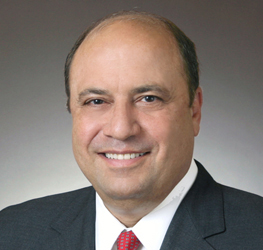Economy: Florida Unemployment Reaches 23-Year High
On March 27, 2009, the Florida Agency for Workforce Innovation announced that the state’s seasonally adjusted unemployment rate for February 2009 was 9.4 percent, with 874,000 jobless out of a total workforce of 9.3 million. The February unemployment rate was 0.6 of a percentage point higher than the revised January 2009 state unemployment rate of 8.8 percent, and 4.2 percentage points higher than the February 2008 state unemployment rate.
The last time Florida’s unemployment rate reached 9.4 percent was in April 1976. Under the current methodology for measuring unemployment, Florida reached its highest unemployment in January, February, and March 1976, when the unemployment rate was 9.7 percent.
Continuing current trends, the counties with the lowest unemployment rates were Liberty (5.5 percent), Alachua (6.0 percent), Leon (6.2 percent), Monroe (6.2 percent), Jackson (6.9 percent), and Union (7.0 percent). The counties with the highest unemployment rates were Flagler (14.2 percent), Hernando (12.7 percent), St. Lucie (12.7 percent), Marion (12.3 percent), Lee (12.0 percent), and Charlotte (11.8 percent). Twenty-seven counties had unemployment rates of 10.0 percent or higher.
State Budget: State Senate Budget Proposal Raises Taxes and Fees
Florida Senate Appropriations committees will take up the Senate’s proposed state budget for the 2009 – 2010 fiscal year on April 1, 2009. The Senate proposals focus on a series of fee increases and approximately $1 billion in spending cuts, in an effort to address the $6 billion shortfall between expected spending and anticipated revenues.
Revenue increases in the Senate plan include:
- A $1-per-pack increase in the cigarette tax
- Up to $1 billion in increased revenues from gaming and pari-mutuel facilities
- An eight percent tuition increase for state universities, state colleges, and community colleges
- Increased fees for driver’s licenses, vehicle registrations, and vehicle titles
The budget proposal would maintain public school spending at the current $6,860 per student level, but would cut some salaries. The plan would cut Medicaid reimbursement rates by three percent for hospitals, nursing homes, and health maintenance organizations, and also would cut substance abuse and mental health spending.
The House budget proposals are not expected to rely as heavily on tax and fee increases or gaming revenues.
The full House and Senate are expected to take up their respective appropriations bills during the week of April 13, 2009. Formal negotiations between the two chambers could begin as early as the end of that week.
Gaming: House and Senate Offer Dramatically Different Approaches to Seminole Gaming and Pari-Mutuels
Gaming at Seminole reservations and its impact on pari-mutuel facilities is becoming one of the most contentious issues of the 2009 legislative session. The Florida House and Senate have dramatically different plans for addressing the judicially invalidated Seminole gaming compact and competition between the casinos and the pari-mutuel industry.
On March 25, 2009, the Senate Committee on Regulated Industries passed committee substitutes for SB 788 and SB 836 that would authorize a wider range of gaming options both at the casinos operated by the Seminole Tribe of Florida and at pari-mutuel facilities. Proponents of the Senate package estimate that it would produce approximately $1 billion a year in additional state revenue.
The Senate plan would allow the Seminole Tribe to operate the full range of casino games, including blackjack and other banked card games, craps, roulette, slot machines, and no-limit poker. The tribe would provide at least $400 million a year in revenue sharing to the state. Pari-mutuel facilities in Broward and Miami-Dade counties, which are currently allowed to operate slot machines, would be able to offer blackjack and other banked card games. Pari-mutuel facilities in other counties would be able to operate video lottery terminals. The proposal also would reduce the tax rate on games operated at pari-mutuel facilities.
On March 27, 2009, the House Select Committee on Seminole Indian Compact Review released its proposal. The House plan would limit the games available at Seminole casinos to slot machines and require $100 million in revenue sharing with the state for 10 years. The Seminole casinos would have the exclusive ability to operate slot machines outside of Broward and Miami-Dade counties. The House plan would not reduce taxes on pari-mutuel facilities.
Environment: Economic Downturn Could Force State to Scale Back Purchase of Everglades Land
According to press reports, Governor Charlie Crist is planning to scale back the state’s purchase of Everglades land from the U.S. Sugar Corporation (U.S. Sugar). In 2008, the governor announced that the state would buy U.S. Sugar land for $1.75 billion. By November 2008, the state, through the South Florida Water Management District, had agreed to purchase approximately 180,000 acres for $1.34 billion, contingent on financing.
On March 25, 2009, Gov. Crist acknowledged that, as projected property tax revenues decline, the state is engaged in an effort to modify the land deal. Gov. Crist stated, “The facts have changed. The economy is what it is.”
Several media sources have reported that the state is now seeking to spend approximately $500 million purchase at least 75,000 acres, including 30,000 acres of citrus groves west of Clewiston and 45,000 acres south of Lake Okeechobee.
Public Affairs News Alert is part of our ongoing commitment to providing up-to-the-minute information about pressing concerns or industry issues affecting our clients and our colleagues. If you have any questions about this alert or would like to discuss these topics further, please contact your Foley attorney or any of the following individuals:
|
Marnie George Michael P. Harrell Robert H. Hosay |
Jonathan P. Kilman Thomas J. Maida Leonard E. Schulte |

